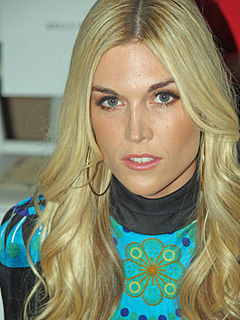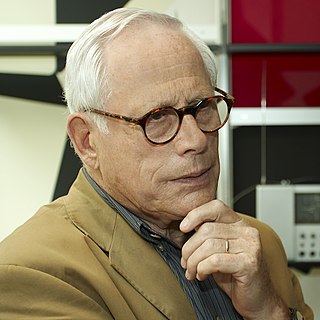A Quote by Donald Norman
I prefer design by experts - by people who know what they are doing.
Related Quotes
Most people consider themselves above the gritty and relentless details of life that allow the creation of great wealth. They leave it to the experts. But in general you join the one percent of the one percent not by leaving it to the experts but by creating new expertise, not by knowing what the experts know but by learning what they think is beneath them.
Are there experts, ethical experts, that's very offensive to all of us? Because it's part of our humanity to have a stake in these questions to feel that we ourselves know the difference between right and wrong. And then along come these experts, philosophers, claiming, you know, an expertise, a special training, a special skill, a special talent.
Most of what we know we don't really know first hand. I've never seen a cancer cell. But I trust this community of experts who have, so I believe that cancer exists. But we trust these experts, and we trust that the experts have a system of checks and balances and self-correction. And we have to insist that experts have certain certifications. They're not perfect. Every once in awhile there's an engine falls off the wing of a plane, or a tax audit happens and you find out your expert made a mistake. But it's a pretty good system. It's the best system we've got.
I have a good sense of my body in a bathing suit around people who appreciate what I'm doing, like a contest. Then I'm proud. On television I am proud. But on a beach most people are not experts. The general public doesn't know how to look. How proud can you be when they don't even know what they're looking at?
I am troubled by the devaluing of the word 'design’. I find myself now being somewhat embarrassed to be called a designer. In fact I prefer the German term, Gestalt-Ingenieur. Apple and Vitsoe are relatively lone voices treating the discipline of design seriously in all corners of their businesses. They understand that design is not simply an adjective to place in front of a product’s name to somehow artificially enhance its value. Ever fewer people appear to understand that design is a serious profession; and for our future welfare we need more companies to take that profession seriously.
Even though we don't know squat about how the brain works, the little we do know suggests that if you wanted to design a learning environment that was directly opposed to what the brain was naturally good at doing, you would design the education system we currently have, not only in America, but all over the world!
Good design is innovative
2. Good design makes a product useful
3. Good design is aesthetic
4. Good design makes a product understandable
5. Good design is unobtrusive
6. Good design is honest
7. Good design is long-lasting
8. Good design is thorough, down to the last detail
9. Good design is environmentally friendly
10. Good design is as little design as possible
When I was working at the game company, I wasn't just doing graphic design, I was doing the entire product management, so I would do the graphic design, I would create the advertisements, even the catch copies. I would figure out what kind of packaging and design of the packaging, so I was basically doing total product management at that time.




































